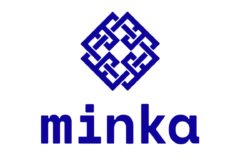On the back of successfully serving African migrants in Canada and the UK, LemFi has raised $33 million in Series A funding to simplify remittance payments for immigrants globally. The round was led by Left Lane Capital. Other investors included Y-Combinator, Zrosk, Global Founders Capital, and Olive Tree. LemFi’s $33 million Series A means it has received just shy of $34 million since it was founded in 2019.
Every year thousands of migrants move to Europe, Canada and the United States to work, study or reside permanently. In 2019 for example, Canada (pop. 37 million at the time) welcomed 341,000 new permanent residents. It was the fifth time in the country’s history that more than 300,000 people moved there in a single year. The previous highs for immigration to Canada were the years from 1911 to 1913, and 2018. Since then more people have come to Canada each year compared to the last. With the exception of 2020 when immigration to Canada fell to 184,000, the lowest since 1989.
Most immigrants to Canada come from Asia. In the 2019 example mentioned earlier about 86,000 of the 341,000 were Indians. Less than 20,000 immigrants were Africans from Nigeria and Eritrea. The numbers are similar for people who are moving to Europe.
Regardless of the country they come from, immigrants face several common problems. One prominent problem is that newcomers feel worried and overwhelmed by the banking systems of their new homes. And sending money back home is a part of where they struggle. In 2022, migrant remittances reached $626 billion globally. For many African countries, these remittances are an important source of foreign exchange. Some countries even encourage their citizens to find work overseas so they can send money back home.
But this several hundred billion dollar migrant remittance market is a broken sphere. Local and large international banks sit on one side with global transfer messaging systems like SWIFT. Traditional money transfer services like Moneygram occupy another side of the table. Informal transfer operators (popularly known as the Hawala system) dominate the black market portion of the global money transfer table. Navigating this array of systems is conflicting and expensive. Especially for Africans.
Making Lemonades
In 2020, the year when global migration contracted due to the pandemic, Ridwan Olalere and Rian Cochran decided it was time to launch their mobile remittance service. Initially called Lemonade Finance, now shortened to LemFi, the service would offer instant international transfers to the African diaspora community in Canada. Prior to LemFi, sending money back home meant stitching together different payment or money transfer services with fees eating up to 8% of the transaction. To receive money from home was even harder and more convoluted.
“In 2020, set out to begin to stake our claim and the area of global financial services. For immigrants starting with Africans first and got our first authorization in Canada,” Cochran tells TechCabal. “As a money service business we began by offering remittance services and then just slowly built out the footprint,” he adds.
LemFi cofounder and CEO, Ridwan Olalere helped build one of Flutterwave’s key payment products and once led Uber’s Nigeria business. Cochran on his part had worked his way up in Opera Software AS from 2008 to 2020, rising to the position of Senior Finance Director as the company’s payment product, OPay grew rapidly in Nigeria.
Both men met while working on OPay where Olalere also once led the development of payment products at the company.
From Canada, Lemonade Finance grew quickly and by 2021, the company had expanded to the UK. About 2.5% (1.4 million) of the population of England and Wales are estimated to be of African origin, according to the UK government’s ethnicity facts and figures research.
At the same time, the company was working to add more African countries where users could send money to or from. By the end of 2021, it had added 10 new African remittance corridors. Now LemFi wants to bring simpler zero-fee money transfers to migrants from emerging market countries. Instead, the company makes money from narrow FX spreads. Because LemFi’s UK licence only permits creating wallets and holding user funds, the company does not offer lending (to earn interest on user deposits) in the same way a bank would.
Migrant workers everywhere, rise!
The company does serve intra-African transfers unlike some of its peers. “We’re really focusing first and foremost on immigrants who now have residency in North America and Europe,” Cochran says.
That is good news for African governments currently battling rapidly drying foreign exchange reserves. Some like Egypt are debating asking fintechs for help after initiatives to promote formal remittances through banks failed to generate significant adoption. Earlier this year, LemFi announced that it had received an International Money Transfer Operator (IMTO) license from the Central Bank of Nigeria. The IMTO license means LemFi users can send funds directly to Nigerian bank accounts without the need for intermediaries. This is yet another contrast to other remittance fintechs which enable cross-payments using stablecoins (crypto versions of fiat currency).
“There’s money to be made in Africa. But for what we were trying to do, we didn’t feel like what we wanted to do was already being done in North American Europe. Whereas what we wanted to do, there was already a lot of competition for that in Africa,” Cochran explains.
There are a lot of parallels that exist for emerging market migrants now living in North America and Europe, so the company wants to be known as the remittance service devoted to migrants from the Global South working and living in the Global North.
“We looked from a global perspective and said, ‘Look, there’s still a lot of opportunity to build something, either for Africans now living abroad, or really just generally speaking immigrant communities that are similar to do those Africans living abroad that need the same products and services.’” Cochran says. The company is now preparing to acquire EU licenses to bring its services to migrant workers and families in the European Union.





















